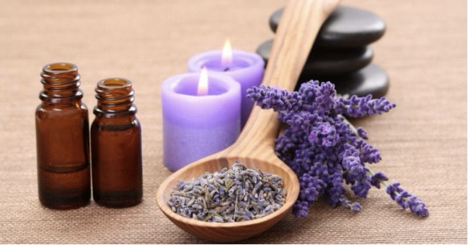Essential oils have been there for years as a natural cure for so many skin ailments, mental stress, or other medical conditions. You might have seen several things on social media about the positives of including these oils in our lifestyle.

While so many people would recommend you using the oils, as a beginner, you need essential oil guides to know how to use them correctly. To help you kick-start your journey to using essential oils, here we have compiled five things you must know about using them-
Essential Oils Are Incredibly Powerful
When you first buy essential oils, you might think that the bottle size is so small as compared to its price. However, once you start using these oils, you’ll find that even a single drop is so potent to be used effectively.
If you are taking the oil internally, 1-2 drops will work fine. You can put a drop of essential oil in a veggie capsule, or add it into a glass of water to take it internally. Even if you are diffusing the oil in your living room, only 3-4 drops are enough to enjoy the benefits.
Some Essential Oils React To The UV Light
Some essential oils, especially the citrus oils (bitter orange peel, lemon peel, bergamot peel, etc.), contain potential photosensitive constituents. This means they may cause allergic reactions or skin damage when exposed to sun, such as itching, redness, or skin discoloration.
So, you need to be cautious while using a photosensitive essential oil for topical applications. After applying these essential oils on your skin, avoid sun exposure for at least 12 hours. Also, read the labels carefully for the photosensitive compounds present in the oil.
You Can Dilute Any Essential Oil If You Have Sensitive Skin
While essential oils are safe to apply on your skin, you must do a test spot first. Even if the oil is safe for skin application, as per the instructions, there’s no harm in doing a test spot on your inner wrist.
The reason is, essential oils are highly concentrated and may cause allergy to the sensitive areas of your skin. If your skin starts itching, burning, or turning red, immediately wipe the area with a cotton cloth. And, add some coconut oil into it the next time.
It’s especially important while using hot oils, such as cinnamon, oregano, clove, thyme, lemongrass, etc. In addition to these oils, you can dilute any essential oil. If you are a beginner, a comprehensive essential oil guide can help you understand the use of essential oils better.
Kids Are More Sensitive To Essential Oils
If you are using essential oils for your child, make sure to dilute them first. Here, one tip is to use their sensitivity as an essential oil guide. Means, if they are sensitive to a particular plant or tree, you want to avoid the related essential oils.
For kids under two years, diffusing oils is the best bet. Also, make sure that you are around them when they are using essential oils. Furthermore, keep them out of the reach of children.
Essential Oils Come In Different Grades
Therapeutic grade essential oils contain organic plants and flowers, or they are pure essential oils. Fragrance or aromatherapy grade contain added oils, such as carrier oils or synthetic components. This is the reason why therapeutic grade essential oils are so costly.
However, whatever the grade you choose, look for quality control. It means anything that has been added into it shouldn’t have been adulterated. It can be either a synthetic chemical or a cheap quality essential oil.
Also, don’t confuse ‘fragrance oil’ with ‘essential oil.’ So, next time you see the word ‘fragrance’ or ‘perfume,’ assume that it isn’t natural. Even if it says ‘natural fragrance,’ it isn’t pure essential oil.
Conclusion
If you are new to the world of essential oils, the points mentioned above can help you use these oils safely. As different essential oils have different benefits, find out which one works best for you.
